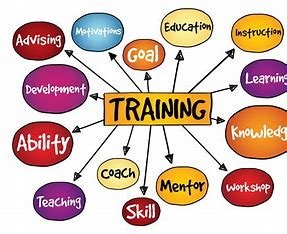“Explore how effective training programs enhance employee skills, foster leadership, ensure compliance, and improve customer experiences, driving organizational success.”
Spend a few minutes digging into the key fundamentals involved and how it all works together for the betterment of an organization as a whole.
In current day due to the fast and extremely competitive nature of the business world, training is an imperative aspect in determining organizational success.
Training contributes tocontinued growth and achieving company objectives, by enabling employees with the essential knowledge to empowering them, create a culture of inclusion and integrity.
Employee Training: Building a Competent Workforce
Training as the Foundation of Competence: At its most basic level, employee training is essential to ensure that each person on your team has the skills and knowledge necessary to be successful in their role.
Whether it be technical expertise or building soft skills, well-crafted employee training programs help organizations to create a talent pool that can seamlessly adapt to the ever-evolving business arena.
Leadership Training: Cultivating Future Leaders
One of the most critical components of developing a robust leadership pipeline in an organization is leadership training.
Training programs should help develop leaders with these leadership attributes and drive a culture for innovation and resilience. The future leaders must build the capability that will guide the company toward sustainable growth and success.
Compliance Training: Upholding Integrity and Ethics
Integrity Compliance training is a critical element in ensuring that employees conduct their functions in accordance with both legal and ethical rules.
Compliance Training — Particularly critical in regulated industries, strong compliance training programs arm employees with the education to successfully navigate cumbersome regulatory environments while protecting an organization’s integrity and reputation.
Value in Diversity & Inclusion
Training initiatives in diversity, equity, and inclusion (DEI) enable us to appreciate the varied contributions of each member.
With the promotion of cultural awareness, addressing unconscious biases and driving inclusive communication, DEI training is creating a work environment where all employees are respected, valued and engaged to provide their best.
Enabling Better Customer Experiences
Undergoing specific customer service training is an investment that organizations make to ensure the best customer experience.
By teaching employees excellent communication strategies, conflict resolution techniques, techniques to remain customer-focused, these training programs make sure that every interaction with the customer will reflect the dedication of organization towards excellence and customers.
Inspiring Technical Excellence
There are certain types of training programmes which are mandatory for employees who are working with advanced machinery, software tools or equipment.
By providing an in-depth training and troubleshooting expertise, technical training serves not just to increase productivity but also reduce the chances of operational downtime as employees are better equipped to deal with their challenges effectively and with accuracy.
Conclusion: Investing in Holistic Training for Organizational Growth
All this essentially means that investment in holistic training mechanisms shows clearly an organisations cutting edge on continuous learning and development toolkits.
When equipped with the resources they need to reach their full potential, employees excel and so do company goals and a trained workforce dedicated to moving the business forward.
Are you a company or org exploring how BioBoston Consulting can help you out? Get in touch with us now or take a tour of our website.


